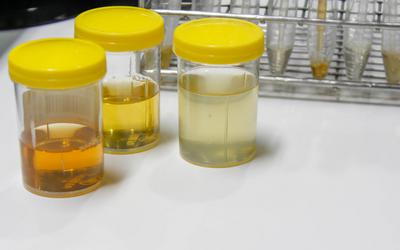Employee Drug Screenings in a Hybrid Work Environment
The work landscape has shifted dramatically since the COVID-19 pandemic, making hybrid work much more common. While many employers have widely embraced this flexibility, it poses new challenges for employee drug screenings.
With employees in many states, businesses must also consider the complexities of state-specific drug testing laws and regulations. By partnering with a provider with locations nationwide, companies can seamlessly implement consistent drug testing regardless of where their employees clock in from.
Read on to learn about the challenges that come with drug testing and hybrid work, concerns about drug use with remote workers, and the impact of drug use on businesses.

1. Remote Work Challenges for Drug Testing Policies
Establishing policies for employee drug screenings in a hybrid workplace can be tough. It's important that employee drug testing policies are fair for all employees, no matter where they work from. If a company's rules don't cover people working from different places, you might find employees sneaking in a drink or using substances while working. All employees should be held to the same standards to avoid legal issues and maximize workplace safety.
2. Remote Worker Substance Use Concerns
According to Sierra Tucson's Self-Medication Nation Survey, a quarter of the respondents admitted to being under the influence while on work calls. One in five admitted to using illicit drugs or alcohol while working remotely. Over a fourth of the respondents expressed a preference for remote work due to the ease of consuming drugs and alcohol during working hours.
The advantages of employee drug testing become clear as businesses strive to tackle issues like compromised safety, lowered morale, and sliding productivity.
3. Policies and Best Practices for Remote Worker Drug Testing
If your company already has employee drug testing guidelines in place, you may need to update them so it allows you to do employee drug screenings for remote workers. It's important to make it clear that no substance use is permitted during work hours, regardless of location. Communicate any changes to the policy clearly to avoid confusion and potential liabilities, and to hold employees accountable. Management should also be trained on how to identify and handle employee drug use.
4. Impact of Drug Use on Remote Workers and Business
Drugs and alcohol at work can decrease the safety of workers, reduce productivity, and hurt team morale. Beyond affecting employees, drug use can lead to broader implications, such as harming the company's revenue, reputation, and even customers or clients.
5. Health Street's Advantage: Customizable Drug-Testing Options
Health Street's employee drug testing services and background checks can help your organization mitigate risks and promote safety and productivity. We offer diverse test options and expertise with fast and accurate results. Choose Health Street as your reliable partner to help you navigate compliance for hybrid workplace safety.
Ready to ensure a safe and productive workplace?
Order an employee drug screening online today and find the nearest Health Street clinic near you.
Frequently Asked Questions
Can you get drug tested for a remote job?
Yes. However, it is important that the company clearly defines the drug-free policy no matter where employees work.
What percentage of employees should be randomly drug tested?
The Department of Transportation (DOT) regulates drug testing standards for DOT employees. No laws or regulations set exact numbers for non-DOT companies, but many companies conduct regular drug testing to maximize employee safety and return on investment.
How do you randomly select employees for drug testing?
Before implementing employee drug testing, be sure that there is a plan to ensure no discrimination and that everyone has an equal chance of being selected. The selection process usually involves a computer-based random number generator. For employers looking to set up a random pool, Health Street can help.






